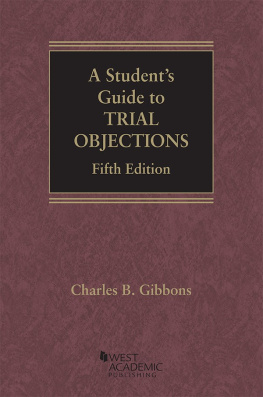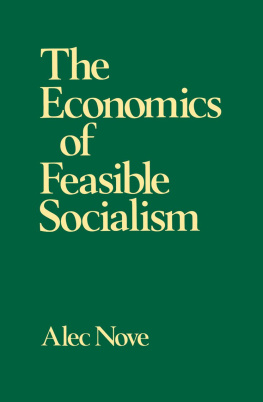By Charles Bradlaugh.
London: Freethought Publishing Company
63, Fleet Street, E.C.
1884
SOME OBJECTIONS TO SOCIALISM
The great evils connected with and resulting from povertyevils which are so prominent and so terrible in old countries, and especially in populous citieshave, in our own land compelled the attention, and excited the sympathy, of persons in every rank of society. Many remedies have been suggested and attempted, and from time to time, during the present century, there have been men who, believing that the abolition of individual private property would cure the misery abounding, have advocated Socialism. Some pure-hearted and well-meaning men and women, as Robert Owen, Abram Combe, and Frances Wright, have spent large fortunes, and devoted much of their lives in the essay to test their theories by experiments. As communities, none of these attempts have been permanently successful, though they have doubtless, by encouraging and suggesting co-operative effort in England, done something to modify the fierceness of the life struggle, in which too often the strongest and most unscrupulous succeeded by destroying his weaker brother. Some Socialistic associations in the United States,* as the Shakers and the Oneida community, have been held together in limited numbers as religious societies, but only even apparently successful, while the numbers of each community remained comparatively few. Some communities have for many years bravely endured the burden of debt, penury, and discomfort, to be loyal to the memory of their founder, as in the case at Icaria of the followers of Cabet. But in none of these was the sense of private property entirely lost; the numbers were relatively so small that all increase of comfort was appreciable, and in nearly all the communities there was option of the withdrawal of the individual, and with him of a proportion of the property he had helped to create or increase.
* Particulars of all existing Socialistic communities in the
United States are given in the works of Mr. Hinds and Mr.
Nordhoff.
During the past generation, Socialistic theory has been specially urged in Germany, and the Socialist leaders there have acquired greater influence because of the poverty of the people, and because too of the cruel persecution to which Social Reformers, as well as Socialists, have been subjected by Prince Bismarck's despotic government.
A difficulty arising from the repressive measures resorted to in Germany has been that German emigrants to the United States and to Great Britain, speak and write as if precisely the same wrongs had to be assailed in the lands of their adoption as in the land of their birth.
Very recently in Englandand largely at the instance of foreignersthere has been a revival of Socialist propaganda, though only on a small scale compared with fifty years ago, by persons claiming to be "Scientific Socialists," who declare that such Socialists as Robert Owen and his friends were Utopian in thinking that any communities could be successfully founded while ordinary society exists. These Scientific Socialistsmostly middle-class mendeclare their intense hatred of the bourgeoisie, and affirm that the Social State they desire to create can only be established on the ruins of the present society, by a revolution which they say must come in any event, but which they strive to accelerate. These Scientific Socialists deny that they ought to be required to propound any social scheme, and they contemptuously refuse to discuss any of the details connected with the future of the new Social State, to make way for which the present is to be cleared away. Most of the points touched on in this lecture were raised in the discussion on Socialism between myself and Mr. Hyndman recently held in St. James's Hall. Others of the questions have been raised in my articles in Our Corner, and in the reply there by Mr. Joynes.
The Socialists of the Democratic Federation say that "Socialism is an endeavor to substitute an organised co-operation for existence" for the present strife, but they refuse to be precise as to the method or character of the organisation, or the lines upon which it is to be carried out. Their reason is, probably, that they have not even made the slightest effort to frame any plan, but would be content to try first to destroy all existing government. I suggest that this want and avoidance of foresight is, in the honest, folly, and in the wise, criminality. They mix up some desirable objects which are not all Socialistic with others that are not necessarily Socialistic, and add to these declarations which are either so vague as to be meaningless, or else in the highest degree Socialistic and revolutionary.
Whilst Mr. Hyndman, one of the prominent members of the Democratic Federation, thus speaks of Socialism as endeavoring "to substitute an organised co-operation," Mr. E. Belfort Bax, another prominent member and co-signatory of the manifesto, emphatically says, "no 'scientific' socialist pretends to have any 'scheme' or detailed plan of organisation." When organisation can be spoken of as possible without any scheme or detailed plan, it shows that words are used without regard to serious meaning.
These Socialists declare that there must be "organisation of agricultural and industrial armies under State control," and that the exchange of all production must be controlled by the workers; but they decline to explain how this control is to be exercised, and on what principles. We agree that there are often too many concerned in the distribution of the necessaries of life, and that the cost to the consumer is often outrageously augmented; but we suggest that this may be reformed gradually and in detail by individual effort through local societies, and that it ought not to be any part of the work of the State. We point to the fact that there are now in Great Britainall established during the present reignnearly one thousand distributive co-operative societies, with more than half a million members, with over seventeen and three-quarter millions of pounds of yearly sales, with two and a half millions of stock-in-trade, with five and a quarter millions of working capital, and dividing one and a half millions of annual profit; and that these societies, each keeping its own property, still further co-operate with one another to reduce loss in exchange by havings a wholesale co-operative society in England, with sales in 1882 exceeding three and a half millions sterling, and another similar wholesale society in Scotland, with transactions in the same year to nearly one million sterling. We say the way to render the cost of exchange of products less onerous to the laborer is by the extension and perfection of this organisation of co-operative distribution, and that this may be and is being done successfully and usefully, ameliorating gradually the condition and developing the self-reliance of the individual workers who take part in such co-operative stores, and thus inciting and inducing other individuals to join the societies already founded, or to establish others, and so educating individual after individual to better habits of exchange. We say that this is more useful than to denounce as idlers and robbers "the shopkeepers and their hangers on," as is done by the present teachers of Socialism. We object that the organisation of all industry under State control must paralyse industrial energy and discourage and neutralise individual effort.
The Socialists claim that there shall be "collective ownership of land, capital, machinery and credit by the complete ownership of the people," and yet they object that they are misrepresented when told that they want to take the private economies of millions of industrious wage-earners in this kingdom for the benefit of those who may have neither been thrifty nor industrious. The truth is that, if language is to have any meaning, the definitions must stand given by me and unchallenged by my opponent in the St. James's Hall debate, viz.: (1) "Socialism denies all individual private property, and affirms that society, organised as the state, should own all wealth, direct all labor, and compel the equal distribution of all produce." (2) "A Socialistic State would be a State in which everything would be held in common, in which the labor of each individual would be directed and controlled by the State, to which would belong all results of such labor." The realisation of a Socialistic State in this country would, as I then urged, require (1) a physical force revolution, in which all the present property owners unwilling to surrender their private properties to the common fund would be forcibly dispossessed. This revolution would be in the highest degree difficult, if not impossible, for property holders are the enormous majority.








